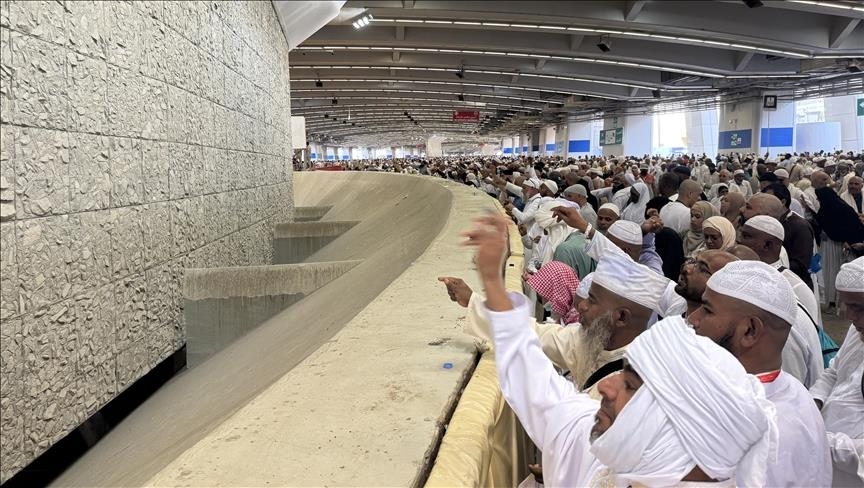
Makkah – Saba:
Pilgrims in Makkah city continued stoning al-Jamarat on Sunday, the second day of Tashreeq, before concluding Hajj rituals.
On this day, pilgrims perform the stoning ritual in a religious atmosphere at al-Jamarat facility, where Mina area witnesses pilgrims throwing the 21 pebbles, starting with the smallest, then the middle, and finally the largest, with seven pebbles for each al-jamarat, reciting the Takbir (Allahu Akbar) with each one.
Tashreeq days are the three days following the first day of Eid al-Adha, which pilgrims spend in Mina, also known as the "numbered days."
Last Friday, pilgrims began stoning Jamarat al-Aqaba, one of the most important Hajj rituals, chanting "Allahu Akbar" (God is Great) and "Allahu Akbar" (Allah is Great). They then performed the Tawaf al-Ifadah (circumambulation of the farewell) after standing on the plain of Arafat on Thursday, performing the greatest pillar of Hajj.
Stoning al-Jamarat, according to Hajj rituals, is "a reminder of the enmity of Satan, who confronted the Prophet Abraham/Ebrahim, peace be upon him, in these places. Thus, they recognize his enmity and warn against him."
Pilgrims in Makkah city continued stoning al-Jamarat on Sunday, the second day of Tashreeq, before concluding Hajj rituals.
On this day, pilgrims perform the stoning ritual in a religious atmosphere at al-Jamarat facility, where Mina area witnesses pilgrims throwing the 21 pebbles, starting with the smallest, then the middle, and finally the largest, with seven pebbles for each al-jamarat, reciting the Takbir (Allahu Akbar) with each one.
Tashreeq days are the three days following the first day of Eid al-Adha, which pilgrims spend in Mina, also known as the "numbered days."
Last Friday, pilgrims began stoning Jamarat al-Aqaba, one of the most important Hajj rituals, chanting "Allahu Akbar" (God is Great) and "Allahu Akbar" (Allah is Great). They then performed the Tawaf al-Ifadah (circumambulation of the farewell) after standing on the plain of Arafat on Thursday, performing the greatest pillar of Hajj.
Stoning al-Jamarat, according to Hajj rituals, is "a reminder of the enmity of Satan, who confronted the Prophet Abraham/Ebrahim, peace be upon him, in these places. Thus, they recognize his enmity and warn against him."